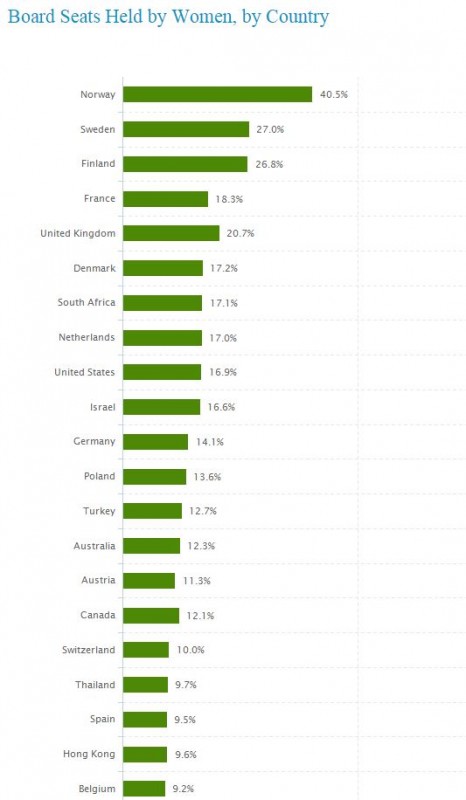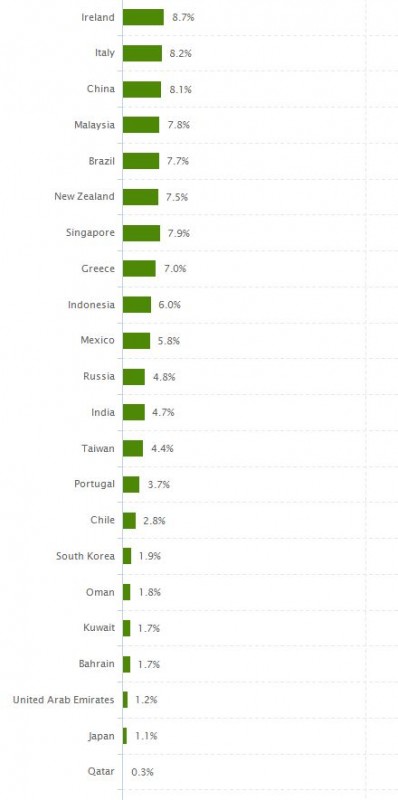Although women make up nearly half of the workforce in the United States, they represent only 16.9% of board members, according to Catalyst’s “Women on Boards.” Norway tops the list with 40.5%, followed by Sweden with 27% and Finland with 26.8%. Japan, Qatar and Saudi Arabia, meanwhile, are at the bottom of the list with 1.1%, 0.3% and 0.1%, respectively.
Mary Jo White, who chairs the U.S. Securities and Exchange Commission board addressed the issue of board parity  in her remarks to the Women’s Forum of New York on Nov. 19.
in her remarks to the Women’s Forum of New York on Nov. 19.
White said:
We all have indeed come a long way since 1974. Today, women receive more than half of all bachelors’, masters’ and doctorate degrees, and more than a third of MBAs. Women are approximately half of the total workforce and half of all managers. But there remain areas stubbornly resistant to the progress that objectively should have already occurred. One in the legal profession is the percentage of women who are equity partners at law firms—18%. That number has only increased 2% since 2006, and we had achieved 12.9% back in 1994. Another resistant area is the financial arena—we now account for 29% of senior officials in finance and insurance, and no woman has, for example, ever been CEO of one of the 22 largest U.S. investment banks or financial firms. A third critical area that has been a particular priority for the Women’s Forum of New York is the focus of today’s event: gender diversity in U.S. boardrooms.
Let us be clear at the outset, this is not a pipeline issue. We are here—in numbers, and we are qualified—in numbers. And yet, there are comparatively very few of us in corporate boardrooms—17.5% in Fortune 1000 companies and 19.2% for the S&P 500.
She noted, “As a growing body of research confirms, it is smart business to have your board diversified to reflect the marketplace and benefit from broader perspectives. It is also the right thing to do.” White added that only 3% of Fortune 1000 companies have boards where women make up at least 40%. She recommended that companies keep “a laser-like focus” on gender parity and “reject any notion that there is a shortage of highly qualified candidates.”
According to Catalyst:


